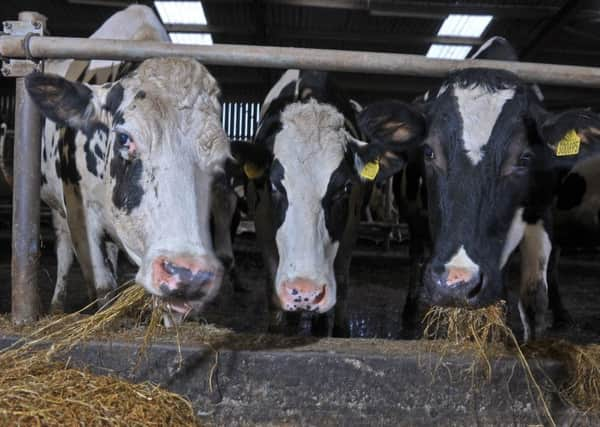YP Letters: Food prices will come down if Britain leaves the EU


WE have been told that Brexit will increase food prices, but as usual with the In side, they can not say how this will happen. I would invite them to explain, but they never seem to have any answers.
We do know that leaving will also mean leaving the expensive CAP which has increased the cost of food enormously, mainly to help inefficient farmers elsewhere in the EU.
Advertisement
Hide AdAdvertisement
Hide AdUnder the Treaty of Rome, we have been obliged to apply an External Food Tariff (EFT) to any foods produced outside the EU such as the Commonwealth.
Removing the EFT will make any food from outside the EU far cheaper to import, while food from inside the EU still be at current prices, and this saving should be passed on to the customers. There is no reason why it should not be the case. Far from increasing, food prices will go down.
It should be noted that this EFT also damages farmers and exporters in ‘developing countries’ who find it difficult, and in some cases impossible, to export to most of Europe.
Removing the EFT would make it far easier for them to export, get a fair price for their goods and be of far more benefit to them than our ‘overseas aid’ which seldom gets to the ‘right people’ anyway. Another massive saving as well as helping people in what was once called “the Third World” to obtain a better life.
Advertisement
Hide AdAdvertisement
Hide AdWe on the Brexit side recognise that our own farmers may also need financial help and farm payments would be made to those who need it, but these will be a tiny percentage of the amounts we currently pay into the CAP. More savings to be passed onto the customer.
Every Prime Minister since Edward Heath has tried to reform the CAP, designed in the 1950s, introduced in 1962, to meet the trying conditions in Europe after the Second World War (British agriculture alone in Europe was comparatively efficient and thriving) and every Prime Minister has failed, mainly due to French resistance.
We are paying at least £16bn per year into the CAP (source: Open Europe) and even after deducting the amounts paid to our farmers in subsidies it still means a bill of £8.27bn more in than we get out.
And it should be noted that this is on top of the £20bn plus per year that we pay in ‘membership fees’ to be in the EU in the first place.
It has been calculated that leaving the CAP, which means Brexit – there is no other way – will reduce the average food bill for a family by about £1,000 per year (£20 per week).